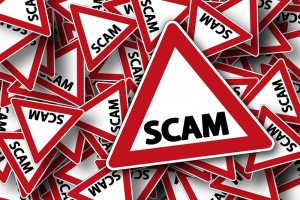BBB Advises Vacationers to Be Wary of Travel Scams
 Hawai‘i’s Better Business Bureau has released a series of tips for travelers to help them stay informed about common scams targeting visitors and vacationers.
Hawai‘i’s Better Business Bureau has released a series of tips for travelers to help them stay informed about common scams targeting visitors and vacationers.
Visitors in new places are often the target of scam artists, according to BBB. Five common travel scams outlined by the organization are as follows:
- Group Photo: Group photo scams tend to be more common in touristy areas or near landmarks. Strangers will offer to take a photo of you and your group, but while you arrange yourself for the photo, the stranger will steal the camera. Travelers should make sure that they are approaching someone to take the photo, not the other way around.
- Hotel Wakeup Call: Scam artists will call you in the middle of the night claiming to be the front desk and inform you there was a problem with your credit card. They will ask for a new card number or for you to give them the details again. Never give account information details away over the phone. If you receive this call, hang up and head down to the front desk in person.
- Fake Take-Out: Although many hotels provide guests with on-site restaurant menus, be aware that scammers are known for sliding menus under doors or placing them within rooms by other means. These menus may be for fake restaurants or list fake contact details. When an order is placed, scammers will phish for credit card information. Avoid this scam by always verifying that a restaurant is legitimate. Check with the front desk or conduct a quick google search. Also, verify that a number is accurate before placing the call.
- Disappearing Vacation Rentals: Scam artists may post fake vacation rentals and ask customers to wire a deposit or provide full payment. They will take the money and leave travelers with no place to stay. Avoid this scam by booking rentals through legitimate sources and never wire money. Be sure to always pay with a credit card.
- Fake Booking Websites: In one version of this scam, scammers will create a website modeled after well-known services like Airbnb or Expedia, and trick users into booking a rental. A second form involves fake companies who will take your money upon “booking” but provide no accommodations in return. Travelers can avoid this scam by booking directly with a hotel. Make sure third-party booking services are trustworthy and verify the authenticity of their website.
In addition, scammers are seizing on the growing popularity of online booking services like Airbnb and HomeAway by creating new scams to trick people out of money. The Hawai‘i BBB recommends the following five tips to avoid falling victim to possible vacation rental scams.
- Use a Rental Service: Rental services such as Airbnb, although not scam proof, have security measures in place to protect travelers. Travelers can read user reviews of properties and owners they may be interested in. By interacting with the owner through designated communication channels, travelers will have a verified record of interactions between parties. Most of these sites have satisfaction guarantees and/or processes in place to protect consumers.
- Interact Face to Face: When arranging travel plans, face-to-face interaction may not be possible but video services like Skype provide a useful alternative. Travelers should ask owners to contact them via their video chat platform of choice to ask questions and to view the property live.
- Google the Property: Get the address of a property and verify it existence through an online search. Make sure it is documented in photos and explore the surrounding area using Google Maps.
- Check the Record: Verify the owner’s authentic ownership of the house or property. Scammers often list properties they don’t actually own. Check public property records (tax records) online to find out who owns a property.
- Pay with Credit: Never pay in cash or wire money. Instead, book rentals using a credit card that will provide protections against scams. You will be able to dispute the charges should a scam arise.
The BBB recommends checking its Scam Tracker regularly to stay updated on rental scams in a given travel destination, and to look up past reviews and complaints on rental services before booking with them.
Additional travel tips can be found on the Hawai‘i BBB website. Consumers who encounter any sort of scam are asked to report it using the BBB Scam Tracker to alert other unsuspecting victims of potential fraud.






